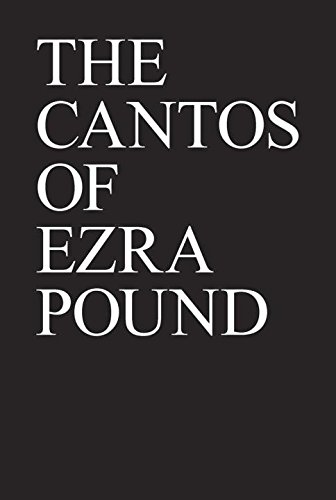About
Born in Idaho, Pound grew up near Philadelphia and became friends with William Carlos Williams and H.D. while studying at the University of Pennsylvania. After a scandal while teaching at college in Indiana (he allowed a stranded actress to stay the night in his room), Pound began to travel extensively, living first in London, then in Paris and Italy.
Preceding World War I, Pound became interested in Chinese and Japanese poetry, which sparked his idea of Imagism as a poetic method. He admired the freer verses of the Asian poetry, that it followed a “musical phrase” instead of an “archaic meter” (as traditional form and meter were still the custom with Western poetry at the time). His small volume of poems Cathay (of 1915) explores translation methods of Asian poets, employing a new freedom of verse instead of forcing these verses into English meter. When World War I began, Pound’s view of western civilization shattered, and after publishing two more volumes, he left London for Paris.
In Paris, Pound moved in artistic circles of the Dada and Surrealist movements, befriending Marcel Duchamp, Tristan Tzara, and Ernest Hemingway among others. It was during this time that Pound also wrote two operas and a solo violin piece. Most importantly, Pound began writing what would become his life’s work, Cantos, during this period.
In 1924, Pound moved to Rapallo, Italy and began to revive interest in Vivaldi, organizing an annual concert series in Rapallo of the neglected composer’s works. Pound was politically active in the years before World War II, as well as during the war. He spoke out (both in writing and on the radio) in favor of fascism, and he did not hide his anti-semitism. Because of anti-American comments and fascist support, he spent time in a detention camp during the war and faced charges of treason against the United States after the war.
Pound was brought back to the United States after the war, and (found “incompetent” to face trial) was placed in St. Elizabeth’s Hospital (a psychiatric hospital) in Washington D.C. He remained there from 1946 until 1958. His time spent at St. Elizabeth’s for his insanity plea is controversial, as he wrote often, received many important guests while residing there, and may have received special treatment.
Pound was only released from St. Elizabeth’s in 1958 after a major campaign for his freedom, lead by Robert Frost and Archibald MacLeish. Still considered “incurably insane,” Pound returned to Europe and died in Italy at the age of 87.
–Christie Finn
Related Information
Songs
Books
Sheet Music
Old Addresses
Composer(s): William Bolcom
Song(s): 1. Lady Death
2. Histrion
3. Ballad of the Landlord
4. The Embrace
5. Africa
6. To My Old Addresses


